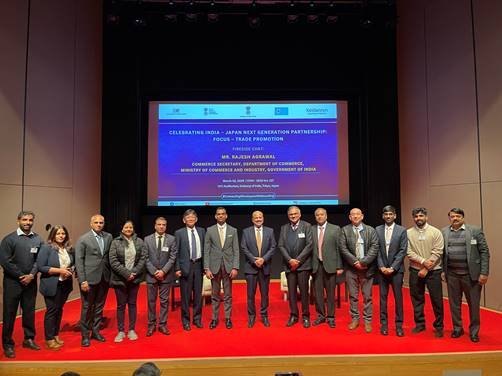India must adopt forward-looking strategies, says Arun Singh
As global trade tensions intensify and the United States recalibrates its economic engagement, Indian businesses need to be ready to mitigate rising risks while seizing newly emerging export opportunities, according to an industry report https://www.commerce.gov.in/.
The report ‘Navigating the Fault Lines of Global Trade: An Indian Perspective,’ by Dun & Bradstreet highlighted that the global trade environment has changed significantly, noting the shifting trade landscape and its implications for Indian exporters https://usispf.org/.
Key Highlights of the report:
• Trade Reset in Motion: Recent US tariff actions mark a significant shift in global trade strategy, impacting a wide range of trading partners including India through broad, cross-border measures https://fieo.org/.
• Margins Under Pressure: Of India’s 3,934 product lines exported to the US, over 3,100 now face a 10% flat tariff, and 343 are hit with a 25% rate. Sectors like iron & steel, machinery, textiles, and chemicals are the most exposed.
• Opportunities Taking Shape: The report identifies 360 high-potential products where India is well-positioned to strengthen its presence in the US market. Big opportunities lie in specialty chemicals, pharma inputs, home textiles, and industrial components http://mea.gov.in.
• Smart Product Strategy: Products are mapped into four zones—Sweet Spots, High Risk–High Reward, Margin Traps, and Non-Core to help businesses focus where it matters most https://www.bseindia.com/.
“This marks an important shift in the global trade landscape,” said Arun Singh, Global Chief Economist, Dun & Bradstreet.
“India is at a point where thoughtful, strategic steps can help turn current global changes into long-term success. As supply chains diversify and trade policies evolve, Indian exporters have a chance to strengthen their role in key sectors,” he said in the report released on 19 May https://www.nseindia.com/.
“To fully leverage this shift, India must adopt forward-looking strategies that balance risk management with market expansion, especially in margin-sensitive industries like specialty chemicals, pharmaceuticals, textiles, and advanced manufacturing inputs.” Fiinews.com








